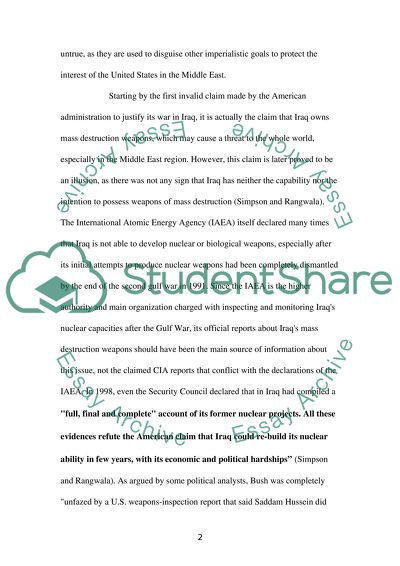Cite this document
(“The United States War on Iraq Essay Example | Topics and Well Written Essays - 2000 words”, n.d.)
Retrieved from https://studentshare.org/literature/1438556-war
Retrieved from https://studentshare.org/literature/1438556-war
(The United States War on Iraq Essay Example | Topics and Well Written Essays - 2000 Words)
https://studentshare.org/literature/1438556-war.
https://studentshare.org/literature/1438556-war.
“The United States War on Iraq Essay Example | Topics and Well Written Essays - 2000 Words”, n.d. https://studentshare.org/literature/1438556-war.


